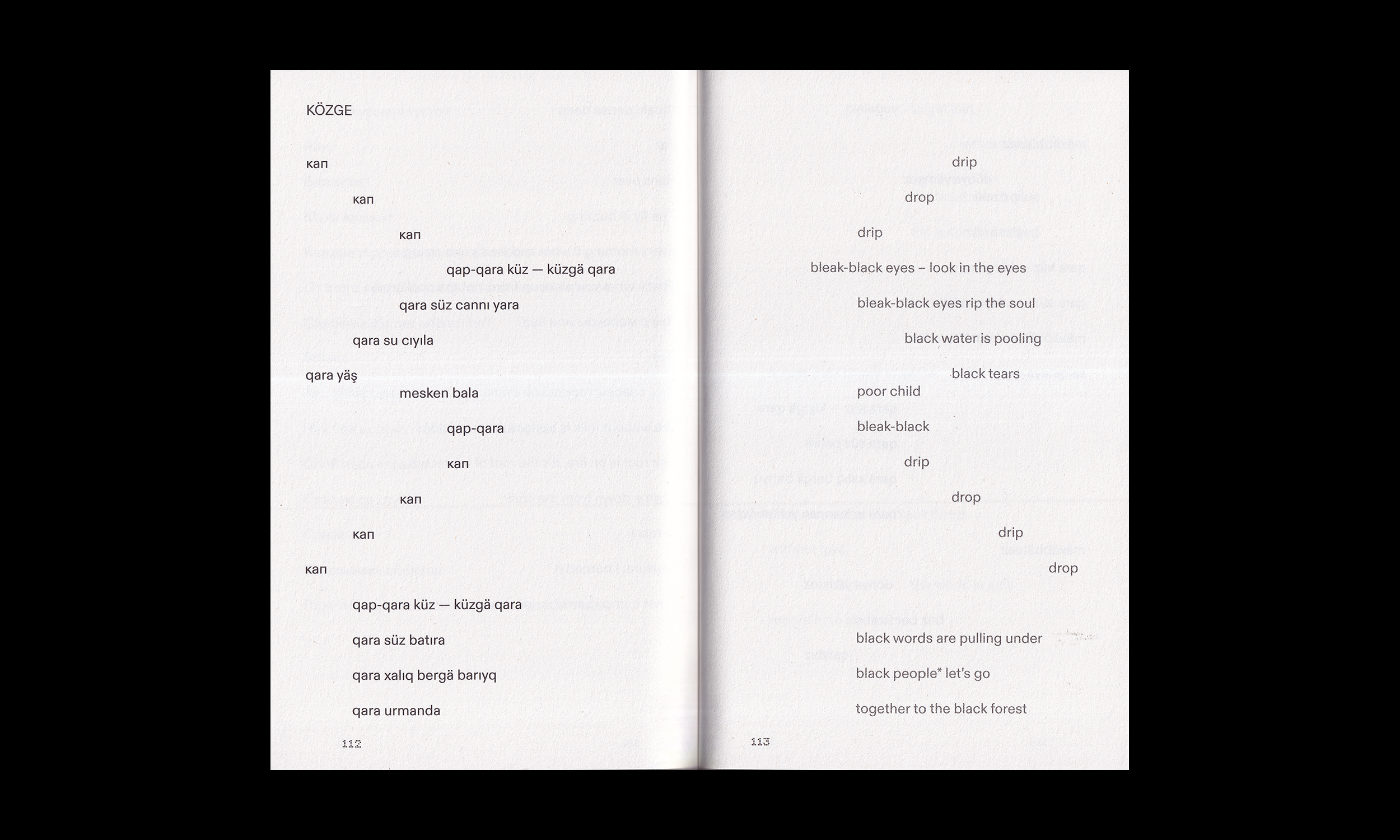Lostlingual by Dinara Rasuleva is the first volume of the sdvig series, dedicated to translingual avant-garde writing. In this volume, Rasuleva, a Berlin-based poet, returns to Tatar, the language of her childhood. She had used it only rarely as an adult, and never before as a creative writer—the national language of her people, smothered by Russian colonialism. She sets herself the goal of composing poetry in Tatar as she remembers it, without consulting dictionaries and grammars. The result is a collection of fragile and liberatory translingual poems, in which Tatar, English, German, and Russian call out, respond to, and transform one another.
Sdvig: translingual avant-gardes is edited by poet and translator Eugene Ostashevsky. Sdvig, a term used by the historical avant-garde in the late Russian Empire and the early Soviet Union to describe distortion and fracture of communication norms, derives from the verb sdvinut’: to cause something to move, usually from one place to another. On the verbal plane, the most common variety of sdvig is the pun, which estranges language by foregrounding materiality, obfuscating reference, and multiplying meanings.
We are calling our series of translingual avant-garde writing sdvig, because translingualism, originating in the displacement of the body, ends up violating linguistic borders and adulterates “the language of the tribe”, which poetry once set out to “purify”. We are also calling our series sdvig, because, by questioning and estranging communication—especially interlingual and intercultural communication—translingualism at once illuminates and sabotages translation, ultimately turning it into a variety of wordplay.
With Rasuleva’s introduction and Ostashevsky’s afterword, Lostlingual also explores the social and conceptual perspectives of translingual poetry.
The sdvig series is designed by Bardhi Haliti.







